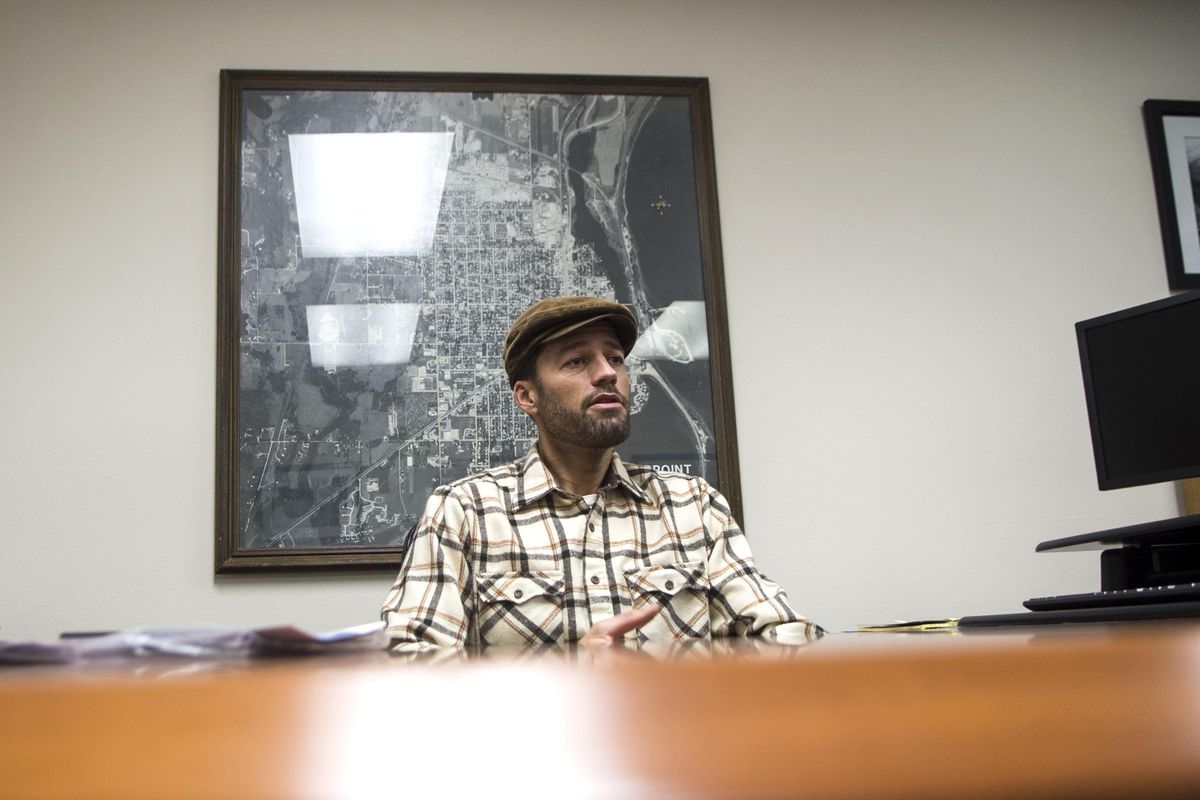Election-related harassment in North Idaho reflective of hardened political attitudes
Firearms dealer Wrenco Arms displayed this sign for Heather Scott in front of their business in Sandpoint, Idaho on Wednesday, November 2, 2016. KATHY PLONKA kathypl@spokesman.com (Kathy Plonka / The Spokesman-Review)Buy a print of this photo
Claims of election-related intimidation and harassment in North Idaho’s Bonner and Boundary counties haven’t been confirmed by authorities, but for some local politicians, both Republican and Democrat, the claims are believable and reflective of hardened political views.
“Sadly, it would not surprise me,” Republican Rep. Shawn Keough said. “I would say that past experience over the last two primary seasons … teach me that there is something going on.”
Sandpoint Mayor Shelby Rognstad agrees with Keough and believes it’s a symptom of a larger issue.
“It’s concerning and I think it just kind of highlights the polarity that we see in politics everywhere, particularly in the national election,” Rognstad said, adding that polarity is spilling over into local elections.
Early in October, the Idaho Democratic Party pulled a field organizer out of Bonner and Boundary counties after the man reported being harassed and stalked by supporters of Republican Rep. Heather Scott.
Scott called the accusations politically motivated “mudslinging.”
Bonner County Prosecutor Louis Marshall said he referred the case to the Idaho attorney general’s office, which opened an investigation in mid-October.
In his own mayoral campaign a year ago, Rognstad was targeted by a series of sexist, homophobic and racist robocalls.
Polarization was on display at a well-attended candidate forum Wednesday in Sandpoint.
Scott declined to attend and urged her supporters to stay away, as well, saying in a letter that the event was designed to “elicit responses from Republican candidates which can be taken out of context, twisted and spun to fit their transparently leftist agenda.”
Forum moderator Chris Bessler, founder of Keokee Co. publishing, said he was disappointed Scott stayed away.
“I think they are short-changing the voters,” he said. “Let people come and decide if this thing is biased.”
Several Scott supporters attended the meeting, although they mostly stayed outside of the auditorium where other candidates were answering audience questions. They laughed off the claims of harassment.
“She’s a very nice person,” Linda Browning said of Scott. “She’s been doing her job in Boise.”
Supporter Doug Paterson said Scott isn’t inflexible when it comes to political compromise, she’s just defending the Constitution and her ideals.
“If you wanted me to help you murder her, and I said no, is that considered inflexible?” he said while gesturing at a Spokesman-Review photographer.
During the event, Republican Rep. Sage Dixon, Scott’s ideological ally, was asked a question about compromise.
Dixon said, “Compromise is a dirty word … and it usually means you are backing off.”
He went on to say he was willing to listen to others, but not at the expense of his own ideals and beliefs.
That attitude is exactly the problem, former Republican Rep. George Eskridge said. He lost his seat to Dixon two years ago.
“I could believe it could happen,” Eskridge said of the alleged harassment.
In the past several years, he’s seen a shift in the political mood of the area, a shift he blames in part on national politics.
That worry prompted him to donate the remaining balance of his campaign fund, $800, to Democratic candidate Kate McAlister in August. McAlister is challenging Scott in this year’s election.
“Our job is to solve issues, not go to the extreme and say no to everything,” he said, referencing Scott’s denial of multiple bills in the Idaho Legislature. “I’m afraid my party is becoming the party of ‘No.’ ”
When he was ousted two years ago, he said he heard stories about people approaching his supporters and warning them that he was a “RINO,” or Republican in Name Only.
Earlier this month, Scott encouraged her supporters to note the addresses of homes with McAlister signs in the yards, in an effort to compare that to voter rolls.
“We are trying to figure out which ‘Republicans’ may really be Democrats in disguise on the voter logs,” she wrote in an email.
Ultimately, Eskridge said, serving in public office is about working with those who don’t agree with you.
“You have to use good sense in statesmanship in solving problems,” he said.
Standing in front of Sandpoint High School on Wednesday, Eskridge gestured at the building where he graduated from in 1961.
“Look at this school here, it takes money to teach these kids,” he said. “Don’t desert them. Don’t vote no on all the education bills.”
Staff writer Betsy Z. Russell contributed to this report.


